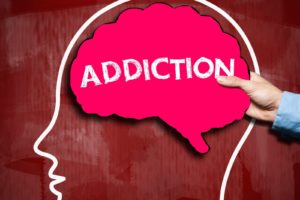Are you surprised by the question in the title? Maybe you’ve thought ADHD was only a behavioral disorder.
However, many children living with ADHD have difficulty focusing their attention on necessary tasks and using working memory effectively, making ADHD a cognitive disorder as well. ADHD is a developmental condition of inattention and distractibility, with or without hyperactivity.
Take, for instance, Thomas, a middle school student. Thomas has difficulty staying on task and completing his schoolwork. He also has problems keeping his backpack and papers organized and remembering what to bring home or take to school. He might read a chapter but not retain what he has read. He might know the material but be unable to write an answer or start a paper because he cannot organize his thoughts. He might be able to write out math equations, but makes careless errors along the way. He also has problems keeping track of his personal items and keeping his bedroom organized.
It is not that Thomas does not know what to do. No matter how hard he tries, he somehow does not get it done.
When a child has ADHD, his or her brain is working overtime, all of the time. A key symptom is difficulty in calming down, because the brain is overcompensating for the complex processing that is taking place.
And ADHD is not just an American issue. Globally, 4 percent to 7 percent of children suffer from it. And, 58 percent to 87 percent of children diagnosed with ADHD have a least one other disorder. Up to 20 percent may have three or more disorders, in addition to ADHD.
The most common conditions diagnosed along with ADHD are oppositional defiant disorder, a learning disability, anxiety disorder, mood disorder or substance abuse.
Children left untreated for ADHD are 10 times more likely to quit school. And, left untreated, adults with ADHD are twice as likely to have problems keeping friends, twice as likely to rarely or never use birth control and twice as likely to be involved in three or more automobile crashes (and more likely to be at fault).
While ADHD is prevalent in society, it is important to remember that only psychiatrists, pediatricians, and clinical psychologists can give a diagnosis of ADHD. Teachers and childcare providers, for example, are not licensed to do this. Also keep in mind, that children are children, and it’s very common for young children to bounce around, have trouble staying focused for long periods of time, and may need coaching on organization before they are considered “organized.”
So how do you know when a child has ADHD? Testing is available. Only testing can confirm a diagnosis, and then parents and medical care providers can begin discussing solutions best for the child.
Medication may be prescribed, natural supplements may be suggested or another approach includes behavioral training, both for the parent and the child.
Here are a few helpful suggestions for children with ADHD:
- Sit close to the front of the classroom
- Seek a classroom with a low teacher-student ratio
- Seek a teacher who plans stimulating and engaging assignments
- Take frequent breaks
- Schedule most demanding tasks in the morning
- Work in an area with few distractions
- Get up earlier, or lay out clothes and pack the backpack the night before
If you would like to learn more about ADHD, you can watch a five-part video series on how ADHD can affect children in the school or home.
Most importantly, know that help is available.










